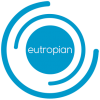The Community Philosophical Practice for “the city of humanity”
Eutropian, through the different expertise of its members and collaborators, is starting an educational planning that takes Community Philosophical Practice as the central element of the processes of urban regeneration and planning.
The Community of Philosophical Inquiry (CPI) is the method used to encourage the development of a multilevel participatory process, of “complex thinking”, for those types of actions that imply the involvement of groups of citizens interested in discussing definite issues:
- reflection arguing logically, presenting good reasons
- creation to review, elaborate or consolidate ideas and opinions about a common
research object
- affectivity (caring) to decide empathically, to activate an “interested” thought starting from
experience.
The CPI is not just a “methodology” for communicating together empathically by taking charge of the other’s emotions (circle time), or a participatory “problem solving” system (focus group), but it is a context in which a democratic restructuring and modeling of social relations and of the human being in his role as citizen takes place. The participants of a CPI are able to clarify their vision of the world and to acquire, in an appropriate time, a series of regulatory “social clothes”: being together as a reasoning community; think and speak by listening and respecting the other’s thoughts/opinions; connect the elements of a problematic situation in an overall picture.
- Training opportunities
Eutropian proposes some paths of Community Philosophical Practice on the themes of urban regeneration, also using the tools of community psychology, to increase complex cognitive abilities: linguistic-expressive, creative-imaginative (innovative thinking) and emotional-social skills.
Community Philosophical Practice can be declined as:
- Philosophy for Children in the school community
- Philosophy for Community in the social community, understood as formal aggregations and informal people who find themselves in certain social places (hospitals, prisons, companies, etc.) for certain interests and needs.
Addressees:
- educational institutions (students, teachers/educators, ATA staff, parents);
- social groups involved in participatory processes in urban regeneration activities;
- urban planning professionals;
- third sector professionals and personnel management.
- Philosophy for Children (or P4C/P4wC) is the pedagogical program born in the mid-seventies on the initiative of the American philosopher Matthew Lipman, and his collaborators. Is a real curriculum with specific materials and texts. It is inspired by the proposal of the pragmatist philosophers Peirce and Dewey of the “Community of Inquiry”, a model of reflective investigation in common that starts from human experience, taking into account all its dimensions: logical-rational, ethical-value and aesthetic-creative. His driving force is the Institute for the Advancement of Philosophy for Children (IAPC), and is now widespread in more than 60 countries in the world and supported by European federations of scholars and international operators (see European Foundation for the Advancement of doing Philosophy with Children–SOPHIA and the International Council of Philosophical Inquiry with Children–ICPIC). Since the late 1990s, it has also spread to Italy and has become a UNESCO heritage site thanks to the interest of its Division of Philosophy, which has recognized some specific educational potential: common development, analysis and training of concepts, implementation of reasoning and problematization skills.
- Philosophy for Community (or P4Co) is a program, derived from P4C, which promote reflective dialogue with groups of adults in formal (private companies, third sector organizations, public administrations, etc.) and informal (groups of citizens who meet on a topic of common interest) contexts. It is an empowerment and development of complex thinking skills in the social dimension of learning. It is an activity of meta-cognition, conscious reflection on the contents and processes adopted, as well as the ability to control them. It involves mental activities in a multidimensional way: rational, emotional and creative aspects.
- Participatory processes. It favors a way of “thinking in dialogue” which involves the acquisition of self-regulation and temporary suspension of judgment with respect to automatic responses and thoughts. As well as the creative elaboration of new meanings. The result is the common creation of a new vision and a new order that the initial problematic situation, with the relative amplification of innovation skills in relation to the problem and teamwork.
- Professionals. Following the model of Donald Schön’s so-called “reflective professional”, he contributes to the implementation of specific thinking skills and operations through training for complex thinking.

